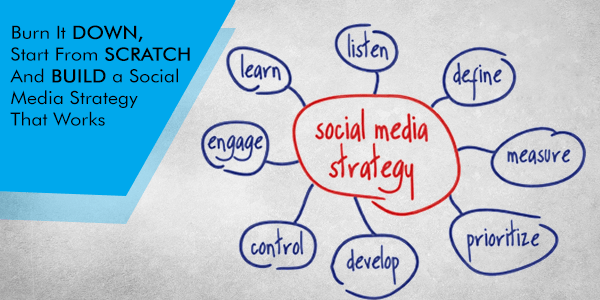
There are times you simply need to destroy what exists in order to replace it with something better. Such is the case for social media. The past seven years have been so full of mistaken beliefs, poor assumptions and outright misinformation that the time has come to reassess completely what social media is, how it works, how consumers use it and what it means for brands.
The fact is that much of the social media dogma we take as gospel has been wrong from the start. As a result, brands are wasting good money to chase irrelevant or even damaging social media outcomes, and the required improvements are not minor adjustments. In many cases, the wrong departments have hired the wrong people to do the wrong things evaluated with the wrong measures.
Together we’ll burn social media to the ground and rebuild it from scratch. We’ll do this with data. Data will provide the spark and accelerant that destroys today’s social media strategies, and data will also be the bricks and mortar to build a credible and accurate understanding of consumers’ social behaviors and the legitimate opportunities available to business.
Destroying Social Media Myths with Data
Every social media marketer and pundit knows case studies that tease the promise of organic content success. They share and reference the same ones time and again, building false hope that marketers’ next social campaign will be Oreo Dunk, #LikeAGirl or Real Beauty. But tear yourself away from the rare and apocryphal stories of success and focus instead on broad, unbiased data, and a different picture emerges.
“Organic social media stopped working.” Those words are from the latest Forrester report, “It’s Time to Separate the ‘Social’ From the ‘Media.'” This is the same Forrester that in the 1990s counseled IT leaders to pay attention to “Social Computing” and whose 2008 book, Groundswell, introduced many business executives to the ways social media was changing consumers and the marketplace. Today, Forrester is again ahead of the curve, making the case that brand organic opportunities have disappeared and social media marketing has become entirely a paid game. As a result, the research firm recommends that marketing leaders assign their social budgets not to the social team but the media team because, as Forrester notes, “Social ads aren’t social; they’re just ads.”
